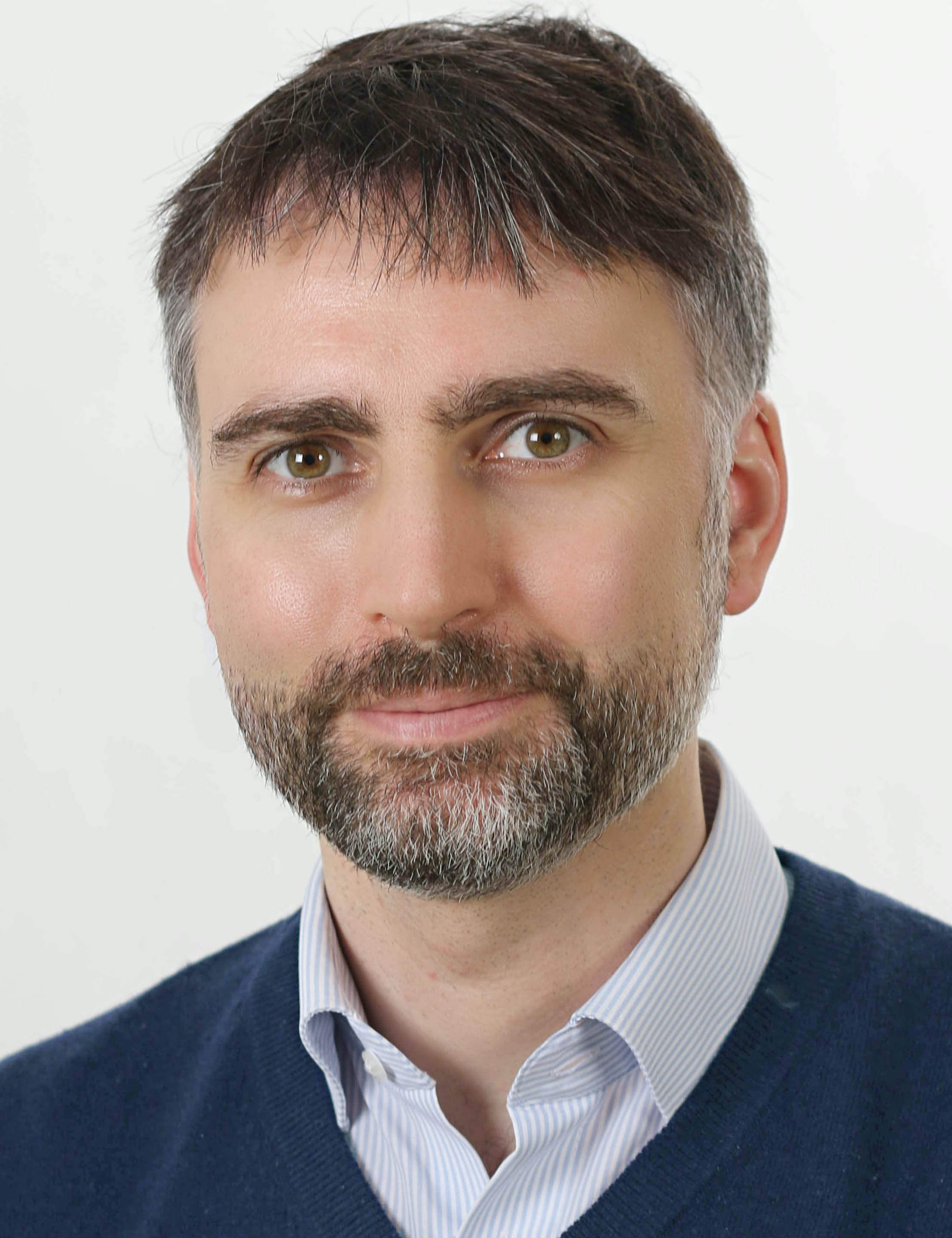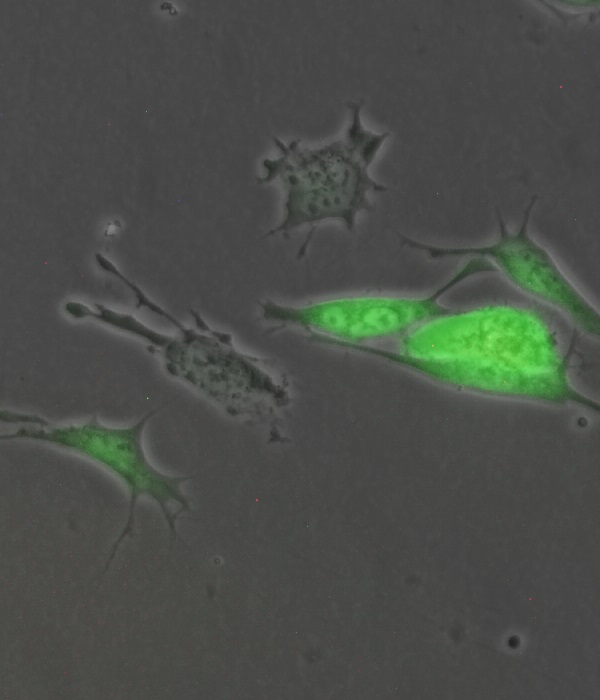(copy 1)
(copy 1)
Translational pediatric sarcoma research
The mission of the division of "Translational Pediatric Sarcomas Research", which corresponds to the DKFZ division of the same name, is to improve treatment options for children and adolescents affected by sarcomas. We aim at uncovering disease mechanisms that can be used diagnostically and therapeutically to improve the long-term chances of recovery of our young patients. The focus lies on new methods that are essential for correct diagnosis and the choice of the best possible therapy. We also investigate less aggressive therapies and new approaches to overcome drug resistance of tumors. In this regard, one special objective is to decipher the interactions between acquired mutations and innate natural variants of the genome, which can play a decisive role in the development and progression of cancer, particularly in Ewing sarcoma.
We aim at developing novel therapeutic strategies based on new insights into the molecular mechanisms of disease following two major lines of research (see research areas). Our investigations start with the analysis of the patients’ tumors in situ, followed by studying patient-derived cell lines using a wide variety of in silico, in vitro, and in vivo techniques.
The division is supported by the Barbara und Wilfried Mohr Stiftung.

Spotlight - AG Grünewald
Broad array of methods and interdisciplinary approach
Our translational research activities encompass a broad array of methods and we work in a highly interdisciplinary approach to discover new treatment options for children, adolescents and young adults affected by malignant bone and soft-tissue sarcomas.
Dominant oncogenes often hijack or interfere with developmental pathways thereby conferring a considerable growth advantage to tumor cells. We are interested in the mechanisms through which oncogenes arrest sarcoma cells in a lineage-specific, early-committed but yet largely undifferentiated state via deregulation of key developmental pathways, and how they cooperate with them to promote tumorigenesis and cancer progression.
Primary and/or secondary resistance to conventional chemotherapeutic drugs is a frequent event in pediatric sarcoma. Chemo-resistance is a highly specific process in which tumors become resistant to certain drugs while maintaining (limited) susceptibility toward others. Underlying to this resistance is considerable plasticity due to intra-tumor heterogeneity, which enables the adaptation to therapeutic stress on the clonal and sub-clonal level. We strive for illuminating the genetic basis and biological mechanisms of tumor-heterogeneity and aim at identifying novel biomarkers for individualized risk-stratification, prediction of treatment response, and to indicate which targeted therapeutics may help overcoming resistance to conventional (chemo)therapeutics.
Translational Genomics
The team Translational Genomics (T. Grünewald) systematically established multi-dimensional omics-datasets of a large number of pediatric sarcomas and correlates identified molecular alterations with clinical data to identify novel driver mutations, druggable targets and prognostic/predictive biomarkers, and to create resources for hypothesis generation and functional validation.
Contact:
Univ.-Prof. Dr. Dr. Thomas Grünewald
Phone: +49 6221 42 3718
E-Mail: t.gruenewald(at)dkfz-heidelberg.de
Mechanisms of Cancer Progression
The team Mechanisms of Cancer Progression (F. Cidre-Aranaz) aims at deconvoluting the multilayered process underlying cancer progression and metastasis. We employ systems biology approaches combining in vitro and in vivo functional characterization of potential targets with multi-omics data and clinical information to identify targetable vulnerabilities in pediatric sarcomas.
Contact:
Dr. Florencia Cidre-Aranaz
Phone: +49 6221 42 3717
E-Mail: florencia.cidrearanaz(at)dkfz-heidelberg.de
Innovative Therapies
The team Innovative Therapies (S. Ohmura) investigates potential therapeutic targets for pediatric sarcomas through comprehensive analyses crossing omics and clinical data sets. Our scope lies in developing targeted approaches with a particular emphasis on therapy-refractory tumors, which may enable more effective therapies with less adverse effects.
Contact:
Dr. Shunya Ohmura
Phone: +49 6221 42 3717
E-Mail: shunya.ohmura(at)dkfz-heidelberg.de
1. Hölting TLB, Cidre-Aranaz F, Matzek D, Popper B, Jacobi SJ, Funk CM, Geyer FH, Li J, Piseddu I, Cadilha BL, Ledderose S, Zwilling J, Ohmura S, Anz D, Künkele A, Klauschen F, Grünewald TG*,§, Knott MML*. Neomorphic DNA-binding enables tumor-specific therapeutic gene expression in fusion-addicted childhood sarcoma. Molecular Cancer 2022 Oct 13;21(1):199
2. Cidre-Aranaz F§, Watson S, Amatruda JF, Nakamura T, Delattre O, de Alava E, Dirksen U, Grünewald TGP§. Small round cell sarcomas. Nature Rev Dis Primers 2022 Oct 6; 8(1):66
3. Cidre-Aranaz F, Li J, Hölting TLB, Orth MF, Imle R, Kutschmann S, Ammirati G, Ceranski K, Carreño-Gonzalez MJ, Kasan M, Marchetto A, Funk CM, Bestvater F, Bersini S, Arrigoni C, Moretti M, Thiel U, Baumhoer D, Sahm F, Pfister SM, Hartmann W, Dirksen U, Romero-Pérez L, Banito A, Ohmura S, Musa J, Kirchner T, Knott MML*, Grünewald TG*,§. Integrative gene network and functional analyses identify a prognostically relevant key regulator of metastasis in Ewing sarcoma. Molecular Cancer 2022 Jan 3;21(1):1
4. Li J, Ohmura S, Marchetto A, Orth MF, Imle R, Dallmayer M, Musa J, Knott MML, Hölting TLB, Stein S, Funk CM, Sastre A, Alonso J, Bestvater F, Kasan M, Romero-Pérez L, Hartmann W, Ranft A, Banito A, Dirksen U, Kirchner T, Cidre-Aranaz F*, Grünewald TGP*,§. Therapeutic targeting of the PLK1-PRC1-axis triggers cell death in genomically silent childhood cancer. Nature Commun 2021 Sep 16;12(1):5356
5. Ohmura S, Marchetto A, Orth MF, Li J, Jabar S, Ranft A, Vinca E, Ceranski K, Carreño-Gonzalez MJ, Romero-Pérez L, Wehweck FS, Musa J, Bestvater F, Knott MML, Hölting TLB, Hartmann W, Dirksen U, Kirchner T, Cidre-Aranaz F, Grünewald TGP§. Translational evidence for RRM2 as a prognostic biomarker and therapeutic target in Ewing sarcoma. Molecular Cancer 2021 Jul 27;20(1):97
§ Corresponding author, * shared senior authorship
- Prof. Dr. Dr. Thomas Grünewald (Division Head & Team Leader)
- Dr. Florencia Cidre-Aranaz (Deputy Division Head & Team Leader)
- Dr. Shunya Ohmura (Team Leader & Postdoc)
- Dr. Kimberley Hanssen (Postdoc)
- Dr. Jing Li (Postdoc)
- Cornelius Funk (Physician Scientist)
- Tilman Hölting (Physician Scientist)
- Dr. Julian Musa (Physician Scientist)
- Ji-Young Kim (Physician Scientist)
- Veronika Bursic (PhD/MD Thesis Student)
- Martha Julia Carreño Gonzalez (PhD/MD Thesis Student)
- Katharina Ceranski (PhD/MD Thesis Student)
- Anna Ehlers (PhD/MD Thesis Student)
- Angeline Enton (PhD/MD Thesis Student)
- Rafat Esso (PhD/ MD Thesis Student)
- Tobias Faehling (PhD/MD Thesis Student)
- Florian Geyer (PhD/MD Thesis Student)
- Jia Xiang Jin (PhD/MD Thesis Student)
- Zuzanna Kolodynska (PhD/MD Thesis Student)
- David Obermeier (PhD/MD Thesis Student)
- Alina Ritter (PhD/MD Thesis Student)
- Jana Siebenlist (Student)
- Endrit Vinca (PhD/MD Thesis Student)
- Malenka Zimmermann (PhD/MD Thesis Student)
- Nadine Gmelin (Technician)
- Stefanie Kutschmann (Technician)
- Felina Zahnow (Technician)
- Gabriele Meyer (Administration)

Postal address:
Deutsches Krebsforschungszentrum (DKFZ)
Div. Translational Pediatric Sarcoma Research/B410
Im Neuenheimer Feld 280
69120 Heidelberg

